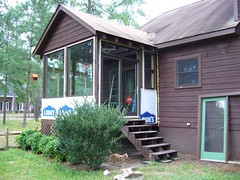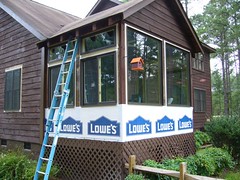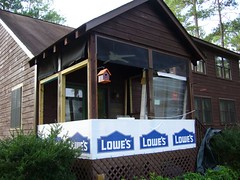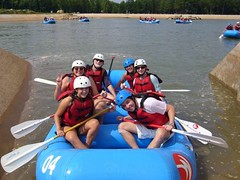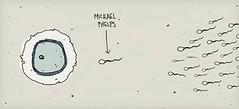I had been wearing glasses for almost 50 years, an expensive annoyance I had learned to live with out of necessity. When I first learned of surgical procedures that corrected for myopia I was intrigued but had little interest in being an early adopter. Glasses corrected my vision just fine, assuming I could find them (most of the time) and the lenses were not scratched or dirty (some of the time). When the Lasik procedure was introduced in the 90's I started paying closer attention. A casual conversation last summer with a friend who recently had Lasik on both eyes prompted me to schedule a screening exam with his surgeon. I conducted my due diligence on the internet, researching the medical literature, the doctor, and the equipment he used. After the exam found me a good candidate, I scheduled the surgery, ASAP.
Everything went as explained and expected. The ophthalmologist and staff were very friendly and professional. The resulting short term discomfort was gone the next morning when I jumped out of bed to see what I could see. It was like Christmas and I had a new toy.
At the 24 hour followup I was seeing almost 20-20. In a week it was almost 20-15. As I was advised, I would need reading glasses and maybe glasses for computer work. Not a problem, I already was using both; I just needed new ones. And yes, I did have the predicted short-term side effects: dry eyes, halos and starbursts, occasional blurring and double vision. But these dissipated within a few weeks, mostly.
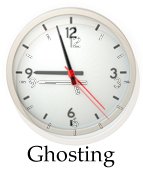 As time passed I began to notice that the slight ghosting or double vision in my left eye was not improving. The quality of my vision seemed to fluctuate according to how pronounced the ghosting that eye was. As I am left eye dominant, an unusual situation for a right handed person, the effect was enhanced. According, sometimes I could see just fine, and then a few hours later things would become annoyingly blurry. Highway signs provided the best gauge. I kept waiting for time-the-healer to make things better. It hasn't.
As time passed I began to notice that the slight ghosting or double vision in my left eye was not improving. The quality of my vision seemed to fluctuate according to how pronounced the ghosting that eye was. As I am left eye dominant, an unusual situation for a right handed person, the effect was enhanced. According, sometimes I could see just fine, and then a few hours later things would become annoyingly blurry. Highway signs provided the best gauge. I kept waiting for time-the-healer to make things better. It hasn't.I suspect one variable is moisture. Lasik surgery cuts nerves in the cornea that affects tear production. The rate patients heal varies, making the use of eye drops a longer term proposition for some. I must fall into that group. I don't heal as quickly as I once did. But that should be true for both eyes. Why is my left eye different?
I suspect that the large dormant aneurysm behind my left eye has something to do with that double vision. Unlike my right eye, the area surrounding my left eye was sore for weeks after the procedure. If that is the case there is no telling when or if things will get better. But, as often before, I could be wrong.
I don't think my doctor or his equipment did anything wrong. I had no surgical complications. The doctor has been very concerned about the issues I have been having and has scheduled frequent follow-ups. He wants to see good outcomes and happy patients; both are certainly in his best interest.
One does not have to google hard to find dissatisfied Lasik patients venting. Don't count me in that category just yet. Some others may well have had much worse experiences than I. Lasik is surgery after all. And while I am probably more sympathetic to their results than most, no surgery can be guaranteed and no patients are exactly the same. I gave my informed consent. I can and will live with the results.
The other day I was watching the flight of golf balls against a pine tree green background struck off the tee over 440 yards from where I was sitting. If my vision was always that good my Lasik experience would be an unqualified success. Maybe time-the-healer will make it so. As is, not bad.
